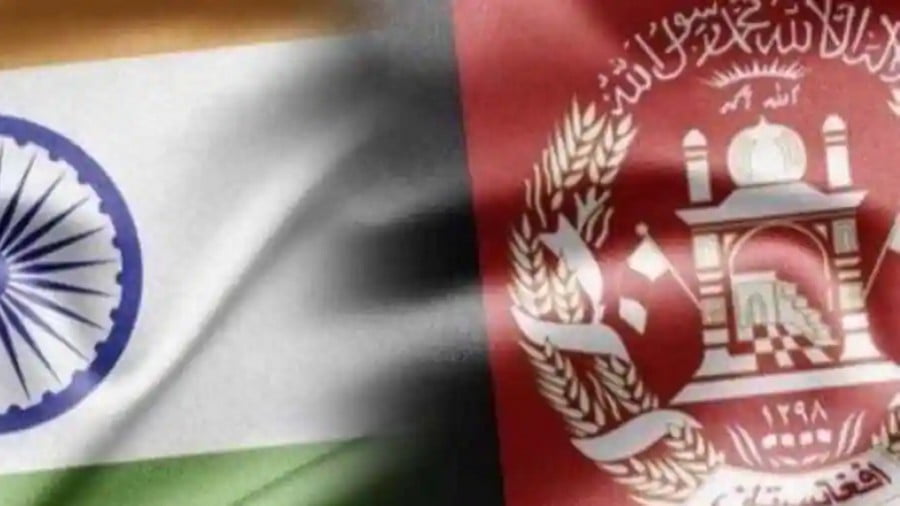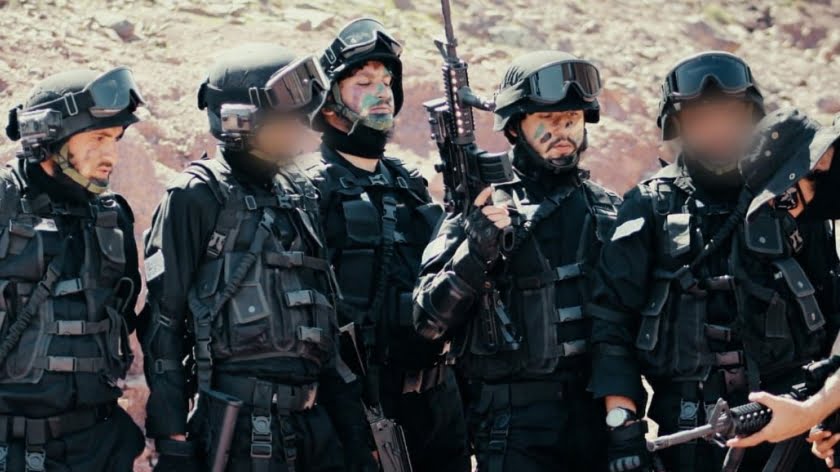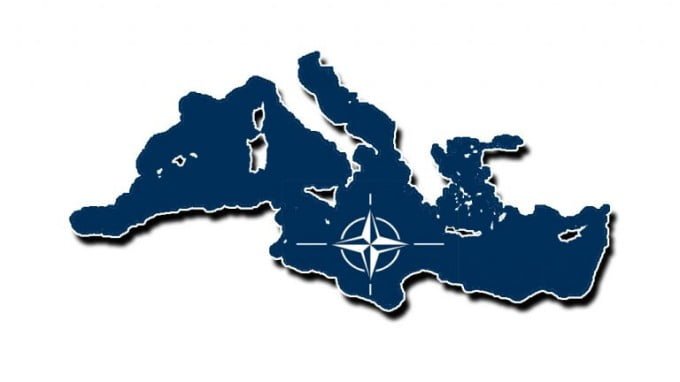India Has Very Limited Security Options for Ensuring Its Interests in Afghanistan
The Taliban’s lightning-fast takeover of Afghanistan in the wake of the US’ full military withdrawal by September 11th presents certain security concerns for India, but the South Asian state only has very limited options for ensuring its relevant interests, none of which credibly involve any conventional military involvement contrary to widespread speculation about this scenario.
India is struggling to ensure its security interests in Afghanistan after the Taliban’s lightning-fast takeover of broad swaths of the country in the wake of the US’ full military withdrawal by September 11th. The South Asian state is concerned that the war-torn nation might become a training ground for Kashmiri militants, or even worse, that some Taliban fighters might consider crossing over the Line of Control (LOC) into the Indian side of Kashmir. It should be kept in mind that the Taliban promised the US as part of last year’s peace deal that it won’t support any foreign militants, nor does it have a track record of expansionist plans outside of its native territory, but India still fears the aforementioned worst-case scenarios.
There’s been widespread speculation over the years and especially in recent weeks that India might provide conventional military assistance to Kabul in order to stem the Taliban’s rapid advance. According to those who ascribe to that scenario, this could possibly involve arms transfers, intelligence support, actual troops, and/or private military contractors (PMCs). The first two options are the most credible since they entail comparatively low costs and almost no risks to India itself. The last two ones, however, are much costlier in all respects. India’s leadership must also certainly understand that if it’s still struggling to contain what it regards as security threats in the part of Kashmir under its control, then it’ll be much more difficult to contain the Taliban in Afghanistan.
Some further elaboration on this insight is required in order to better understand India’s strategic calculations. Those who predict that India might commence some sort of conventional military intervention in Kabul’s support are likely influenced by one or two ideas: that India is pursuing a policy of regional expansionism and/or to trap the country in a deadly quagmire. They’re not mutually exclusive either since accepting the first observation as valid can in turn be instrumentalized through a clever information campaign to influence India into taking the second seemingly natural step of getting itself caught in the Afghan quagmire due to its earlier described fear of the Taliban taking over that country.
No matter how afraid India is of the Taliban conquering Afghanistan, there’s almost nothing that it could do to stop this. Even in the best-case scenario of it dispatching military equipment to the internationally recognized authorities there on an emergency basis and ramping up its intelligence support for their forces, that likely won’t be sufficient to stop the Taliban. At most, all that it could do is temporarily delay what appears to be the inevitable outcome of the war. As for the third and fourth policy options, they’d fully depend on Iran passively facilitating India’s military intervention since there’s no way that Pakistan would support this. The incoming “principalist”/”conservative” administration, however, might not be in favor of doing so.
President-Elect Raisi is predicted to take a stronger stand against the US and its proxies upon assuming office. Although Iranian-Taliban ties are complicated, the Islamic Republic might balk at being portrayed as having anything to do with another foreign military intervention in one of his country’s neighbors, especially one which would indirectly aid American strategic goals. It’s one thing for Iran to assist India’s regional economic integration plans through the Central Asian branch of the stalled North-South Transport Corridor (NSTC) and another entirely for it to approve the overflight of Indian forces and/or PMCs to Afghanistan in order to fight the Taliban. Some secret agents might still transit through Iran to enter the country, but not on a large scale.
Under these conditions, the best that India can unilaterally do is the first two options that were earlier discussed. It would be much better for its long-term interests, however, if it explored the possibility of entering into secret talks with the Taliban. Some outlets reported that this happened last month even though New Delhi recently denied it. Nevertheless, that’s the most pragmatic policy that India could follow at the present moment. It shouldn’t wage a proxy war against the Taliban via Kabul and/or its own forces/PMCs, but should prepare for the seemingly inevitable reality of that group returning to power to some extent in the coming future. They might still hold a grudge against India, but some level of dialogue is always better than conflict.
India’s Russian ally is the most reliable partner to facilitate such contact if New Delhi had the political will to see this proposed policy through. Although Moscow still officially regards the Taliban as a terrorist group, it nevertheless pragmatically hosted its representatives several times in the Russian capital over the years as part of its efforts to advance the difficult peace process. If Russia could talk to the Taliban despite that group having emerged from the US-backed Mujaheddin of the 1980s that was responsible for killing approximately 15,000 Soviet soldiers and wounding around 35,000 more, then there’s no reason why India can’t do so as well since it never suffered the same level of losses at their forerunner’s hands.
Speaking of Russian-Indian cooperation on Afghanistan, they could also jointly assist Tajikistan with bolstering its border security in the face of ISIS-K’s presence along this frontier. Dushanbe might feel somewhat uncomfortable accepting Indian military aid considering its recent partnerships with New Delhi’s Chinese and Pakistani rivals so it would be more acceptable for everyone if this assistance is coordinated through the SCO in which they all participate. Afghanistan is an observer in this organization so each member’s intelligence support could potentially be funneled through it in order to avoid any perception among some that one or another country’s relevant assistance to Kabul is somehow aimed against their interests (whether directly or indirectly).
With this in mind, an entirely new plan might begin to take shape. Instead of seeking to defeat the Taliban through proxy warfare, something that’s practically impossible to pull off since not even the world’s most powerful military in history could accomplish this task directly despite its two-decade-long occupation of Afghanistan, India should moderate its security goals to containing the threat of ISIS-K’s expansion into Central Asia. This would enable New Delhi to present itself as a responsible regional security stakeholder, especially if it coordinated such efforts through the SCO, perhaps by following Russia’s lead in this respect if Moscow is the first to propose a multilateral campaign to this effect.
There is nothing that India can realistically do to stop the Taliban from training Kashmiri militants apart from retaining a very limited intelligence presence in post-withdrawal Afghanistan to possibly sabotage such efforts on an extremely limited scale. Truth be told, however, that wouldn’t even be necessary to begin with since the Taliban seems to be working very hard to improve its international reputation and therefore is disinclined to train any foreign militants no matter how sympathetic it may speculatively be to their cause. Going back on its word concerning such a globally significant security matter would immediately raise suspicions about its grand strategic intentions and thus reduce the likelihood of it ever being accepted into the international community.
Considering this, India should reconceptualize its security concerns in Afghanistan. The Taliban will most likely take over the country at some time in the future, after which it’ll be cautiously welcomed into the international community for pragmatic reasons. Refusing to enter into dialogue with the group would therefore be a mistake for India’s regional economic interests. Its threat assessment should shift from the Taliban to ISIS-K, and India should accordingly coordinate its relevant security assistance to the Central Asian Republics and especially Tajikistan through the SCO, ideally under Moscow’s aegis. This proposal would enable India to present itself as a responsible regional security stakeholder while pragmatically defending its regional economic interests.







